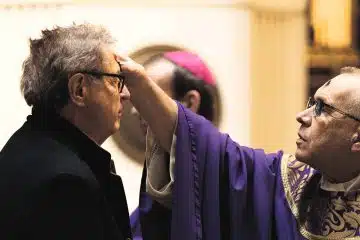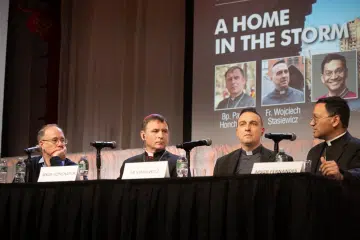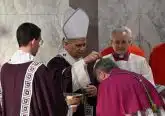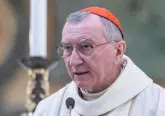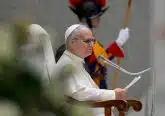Pope Leo XIV’s American citizenship: Can he keep it as pope?
CNA Staff, May 14, 2025 / 06:00 am
Catholics around the world continue to celebrate the election last week of Pope Leo XIV, the first pope from the United States. In addition to being a natural-born American citizen, Leo is also a naturalized citizen of Peru, having ministered there for decades.
His election as pope raises several interesting questions from a nationality law perspective. Chiefly: can a U.S. citizen become king of a foreign country and still remain an American citizen?
The pope is, after all, an absolute monarch; he possesses, as the Vatican’s Fundamental Law explains, “the fullness of the power of government, which includes the legislative, executive, and judicial powers” of the Vatican City State — a sovereign country that maintains relations with over 175 other nations — and the Holy See, which is the central governing authority of the Church.
Paul Hunker, an American immigration attorney and a Catholic, told CNA that U.S. federal law — specifically 8 U.S. Code § 1481 — spells out some very specific conditions under which a U.S. citizen can lose his or her citizenship.
These can include committing an act of treason, obtaining naturalization in a foreign state, and, crucially, accepting a position as a foreign head of state. The key, though, is that in order to be “expatriating,” these things must be done by a person voluntarily and with the intention of relinquishing their U.S. nationality.
The U.S. State Department says it generally presumes that U.S. citizens, even if they accept a foreign government post, want to keep their citizenship unless “clearly and credibly” established otherwise.
Hunker said in the pope’s case, Leo would likely need to affirm an intention to renounce his citizenship directly to a consular officer at the U.S. embassy in Rome — something Leo has not signaled any intention to do.
“I think unless he comes forward and says, ‘I have the intention of relinquishing my U.S. nationality,’ then he is not considered to have lost his U.S. citizenship,” Hunker said.
“At a deep level, I think it says something great about our country: When you’re born here, the government can’t kick you out — unless you affirmatively say that you’re renouncing your citizenship.”
However, the State Department does go on to say that it may “actively review cases in which a U.S. national is elected or otherwise appointed to serve as a foreign head of state, foreign head of government, or foreign minister,” as such cases “raise complex questions of international law, including issues related to the level of immunity from U.S. jurisdiction that the person so serving may be afforded.”
Whatever ultimately transpires regarding Leo’s U.S. citizenship, Pope Leo will potentially have to continue filing a tax return with the IRS as an American citizen living abroad — another potentially complex oddity that is uncharted territory since Poland, Germany, and Argentina, the homelands of the last three popes, don’t tax their citizens abroad. It might require a private letter from the IRS or a specific law from Congress addressing Leo’s situation, the Washington Post reported.
But what about Leo’s Peruvian citizenship? Under the Peruvian Constitution, Peruvian nationality — even if obtained through naturalization — is not lost except by express renunciation before a Peruvian authority. Thus, the status of Leo’s Peruvian citizenship is similar to that of his U.S. citizenship: He’ll likely keep it unless he specifically chooses to renounce it.
So now that he’s the pope, does Leo also have Vatican citizenship? Yes and no.
Andrea Gagliarducci, a Vatican analyst for CNA, said Leo would already have had a Vatican passport, as every cardinal and curial official is given one as part of their office; possessing the passport gives them what is known as “functional citizenship.”
However, Gagliarducci noted that under canon law, it’s not really accurate to say that the pope is a “citizen” of the Holy See, because the Holy See and the pope are one and the same.
“The pope is not [a] citizen, he is the whole Holy See,” Gagliarducci explained. “The pope does not need a passport nor a citizenship, because he is the source of every citizenship.”
Given Leo’s broad new temporal powers as pope, there would appear to be no reason he couldn’t maintain his other citizenships if he wanted to — there’s even precedent for this, as in 2014 Pope Francis renewed his Argentinian passport, though Francis never returned there during his 12-year pontificate.
For his part, Gagliarducci said Francis’ maintenance of his Argentinian citizenship was simply “not necessary.”
“I mean, there is no harm in keeping the passports, but they are no longer needed and useful. The Vatican gives you a passport and lets you retain all of your citizenship along with that passport,” he said.
“[But] you cannot consider the pope a Peruvian, a U.S. citizen, or whatever. He is the Holy See. This is different; it is another world.”






